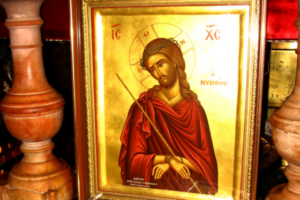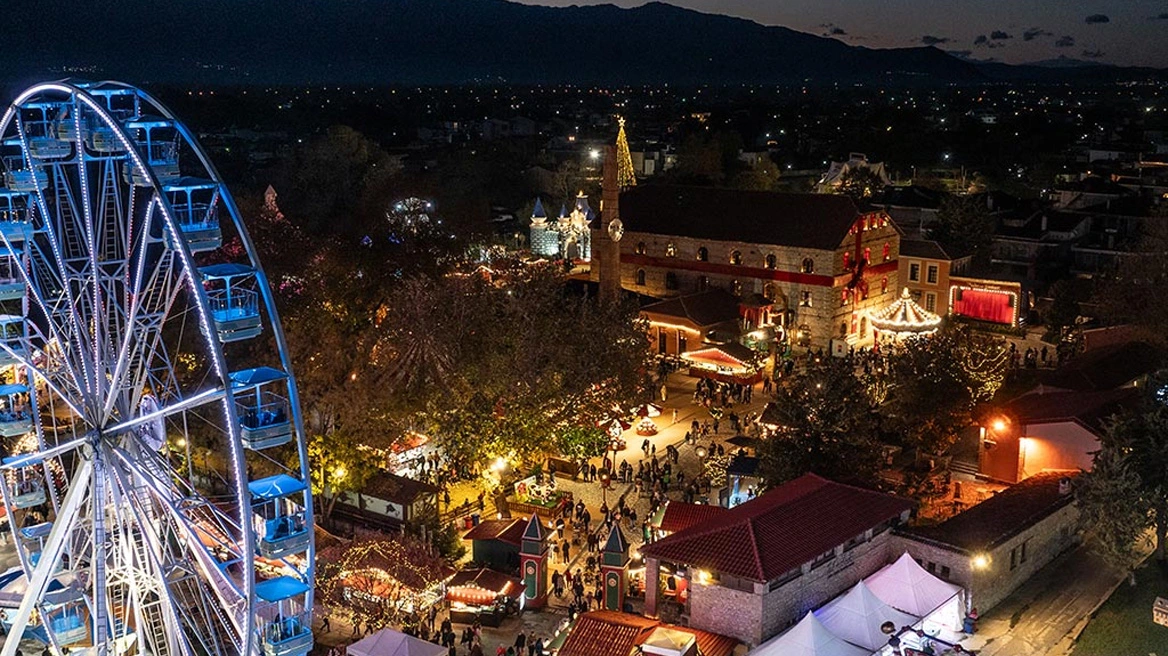Holy Tuesday is dedicated to foresight and vigilance, with the parable of the ten virgins and the hymn of Kassiani, of wonderful poetic beauty: “Lord, the woman who had fallen into many sins.”
A sinful woman approached the Lord and knelt before Him. Crying, she anointed His feet with myrrh and received forgiveness for her sins from God. Her lamentation has a timeless power.
Kassiani was the greatest Byzantine poetess. Emperor Theophilos was dazzled by her beauty, but before giving her the golden apple and choosing her as his wife, he wanted to test her intelligence. He told her that from woman come bad things, implying Eve and the original sin, to receive the reply that from woman also spring the best and noblest things, implying of course the Virgin Mary.
The sharp-witted reply angered the emperor, and he chose the modest Theodora as his wife. Kassiani became a nun and dedicated herself to the worship of God. Her poetic works testify that love for Christ truly liberates the human being.
The Hymn of Kassiani
“Lord, the woman who had fallen into many sins,
recognizing Your Divinity,
took upon herself the role of the myrrh-bearer,
and weeping, brings myrrh to You before Your burial.
‘Woe is me!’ she said,
‘For night surrounds me,
the frenzy of unchastity, dark and moonless,
the love of sin.
Receive the springs of my tears,
You who draw the waters of the sea with the clouds.
Incline to the groans of my heart,
You who bowed the heavens in Your ineffable condescension.
I shall kiss Your immaculate feet,
and wipe them again with the tresses of my hair,
those feet whose sound Eve heard in Paradise in the evening
and hid herself in fear.
The multitude of my sins and the abysses of Your judgments—
who can fathom them, O soul-saving Savior?
Do not overlook me, Your servant,
You whose mercy is boundless.’”
“We commemorate on Holy and Great Tuesday the parable of the ten virgins from the Holy Gospel.”
This is the synaxarion (liturgical reading) of the second day of Holy Week.
The Bridegroom of the Church and Savior of human existence, “more beautiful in form than all the sons of men,” goes toward His voluntary Passion, calling the faithful to draw near, so that He may make them partakers in the salvific sufferings and in the triumph of His Resurrection.
“Holy Tuesday” by Nikos Gatsos
Beneath the banners of Rome
in Magdalene’s tent,
you—father of forgiveness,
and we—children of pleasure.
Hoarse rang the cry
in the taverns of the city,
you—a lamb for the slaughter,
and we—rams of sin.
Pilates did not shake you,
nor the time that is near,
you—in the breadth of the heavens,
and we—intruders on the earth.
Ask me anything
Explore related questions





